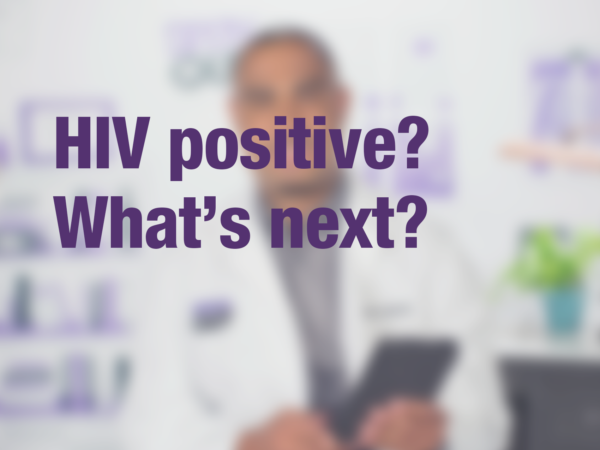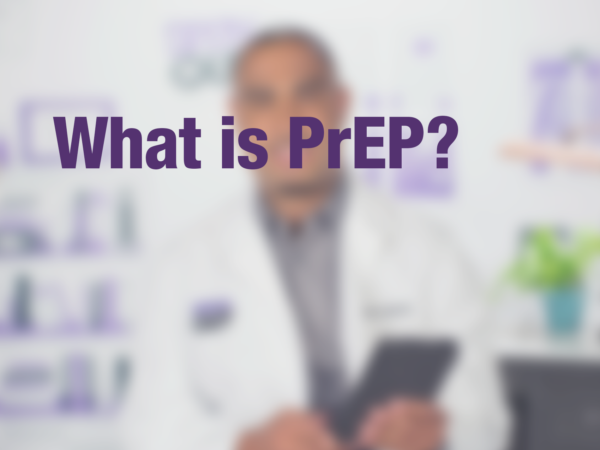Dr. Demetre: What are the symptoms of HIV?
Dr. Demetre: You have some questions? We know HIV.
Dr. David: I’m a doctor. I’m trained for this.
Dr. Leandro: We’re gonna give you what you need.
Dr. Demetre: Most people when they find out they have HIV have no symptoms. You can’t tell if you have it by the way you feel. So, that’s really important to remember. So, getting tested has nothing to do with how you feel, it’s just something that you should do as a matter of routine every few months just to make sure that you stay healthy. Some people do get symptoms of HIV and that’s something that really we should shoot to avoid. If you’re diagnosed with HIV when you’re not having symptoms you prevent getting sick. You never have to feel sick. So, people who do get symptoms can feel weight loss, fatigue, they can have diarrhea, then there’s all sorts of infections and other conditions that go along with HIV, there’s rashes that people can get, skin cancers, it’s really complex, but the bottom line is almost everybody has no symptoms until they get too deep into their infection. So, their goal is really never to have that happen so get an HIV test, it’s a matter of routine, don’t wait to feel sick, that doesn’t really mean very much.
You think you would know, right? Dr. Demetre explains why you can’t tell if you have HIV by the way you feel.
As with many other sexually transmitted diseases (STDs), HIV often shows NO symptoms initially. As a result, people who have HIV often don’t find out until much later when the disease is further along and treatments may be less effective.
You cannot rely on symptoms to tell you whether or not you have HIV. The only way to know for sure if you have HIV is to get tested.
Click here to find free and low cost HIV testing locations in your area.
#AskTheHIVDoc is video series from Greater Than HIV featuring top HIV doctors providing answers to commonly-asked questions about HIV prevention, testing and treatment.
The medical information on this site is provided as an information resource only, and is not to be used or relied on for any diagnostic or treatment purposes. This information is not intended to be patient education, does not create any patient-physician relationship, and should not be used as a substitute for professional diagnosis and treatment.
Always consult your healthcare provider before making any healthcare decisions or for guidance about a specific medical condition.


